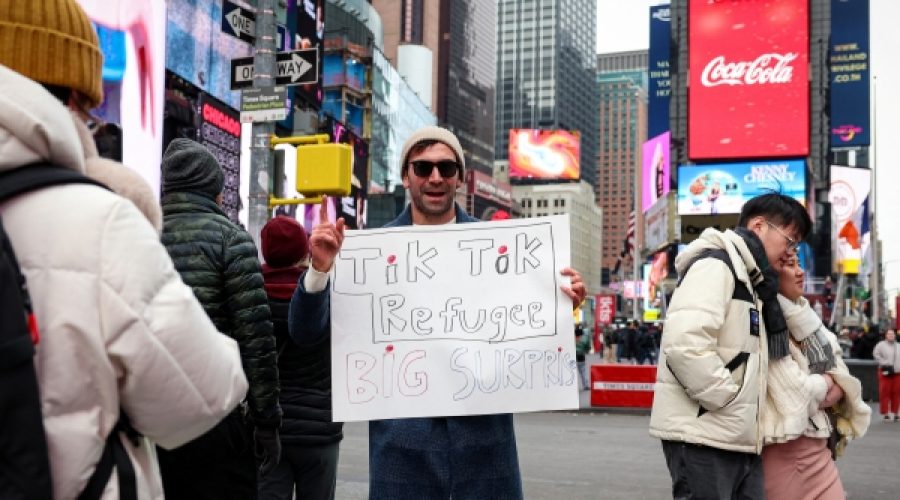How Biden or Trump Could Impact TikTok’s Future: Key Insights for Investors and Business Owners
In a significant turn of events, Donald Trump, who is set to begin his second term as President of the United States on Monday, is now seeking to protect the popular Chinese social media app TikTok. This comes after his administration had previously mandated a ban on the application in 2020, citing national security concerns. The current law requires TikTok’s parent company, ByteDance, to either sell the app to an American buyer by Sunday or face a ban in the U.S.
As President Joe Biden’s administration approaches its final days, calls are growing for an extension that would allow additional time for ByteDance to negotiate a sale. Trump’s incoming national security adviser, Congressman Mike Waltz, expressed on Fox News that measures would be implemented to prevent TikTok from disappearing from app stores.
The law grants the president the authority to extend the sale deadline by up to 90 days if he can certify progress toward a divestment. Colin Costello, an attorney with Freshfields, indicated that Biden could feasibly provide ByteDance a reprieve by verifying a commitment, perhaps through a preliminary agreement. However, no such deal currently appears to be imminent.
To effectively maintain TikTok’s presence in the U.S. long-term, Trump might instruct the Justice Department to deprioritize enforcement of current laws. This approach mirrors actions taken by former President Barack Obama, who utilized prosecutorial discretion to shield certain undocumented immigrants from deportation.
Despite these potential avenues, the new law poses risks for tech companies like Apple and Google, which host TikTok on their app stores. If they continue to do so, they could find themselves in violation of the law, raising concerns over legal liability.
Trump could consider using an executive order under the International Emergency Economic Powers Act, arguing that allowing TikTok to operate aligns with national security interests. He might assert that preventing users from switching to a more restrictive Chinese-owned platform would be beneficial.
Challenges remain, however. Experts caution that a president’s refusal to enforce a law could create significant legal ramifications, straddling the line between creativity in governance and a potential affront to Congressional authority.
A potential resolution could also lie with the Supreme Court, which might choose to halt the ongoing lawsuit TikTok has filed against the government, thereby allowing the new administration to present a revised argument in favor of the app. Yet, time is limited; the court has only one business day before the law’s divestment order takes effect on Sunday. As the deadline approaches, it remains uncertain whether a solution will emerge in time.
Special Analysis by Omanet | Navigate Oman’s Market
The debate surrounding TikTok’s potential ban highlights a critical intersection of national security and technology regulation in the market, presenting both challenges and opportunities for businesses in Oman. Companies may need to reassess their strategies on social media marketing and data privacy, while investors should closely monitor evolving regulatory environments to capitalize on shifts in consumer behavior and emerging platforms. Furthermore, the ongoing uncertainty could create a unique space for Omani tech startups to innovate and fill gaps left by traditional apps affected by these geopolitical tensions.



